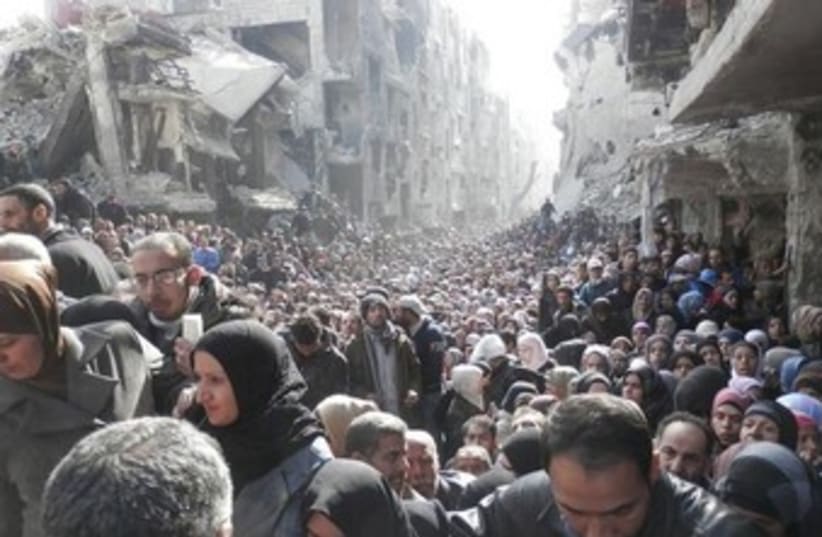Syria is starving Palestinian refugees in Damascus’s Yarmouk, says Amnesty Int’l report
Situation worse since report finished, says researcher; Rebel fighters have returned to Palestinian refugee camp where access to food, fuel, and medical supplies has been cut off.
